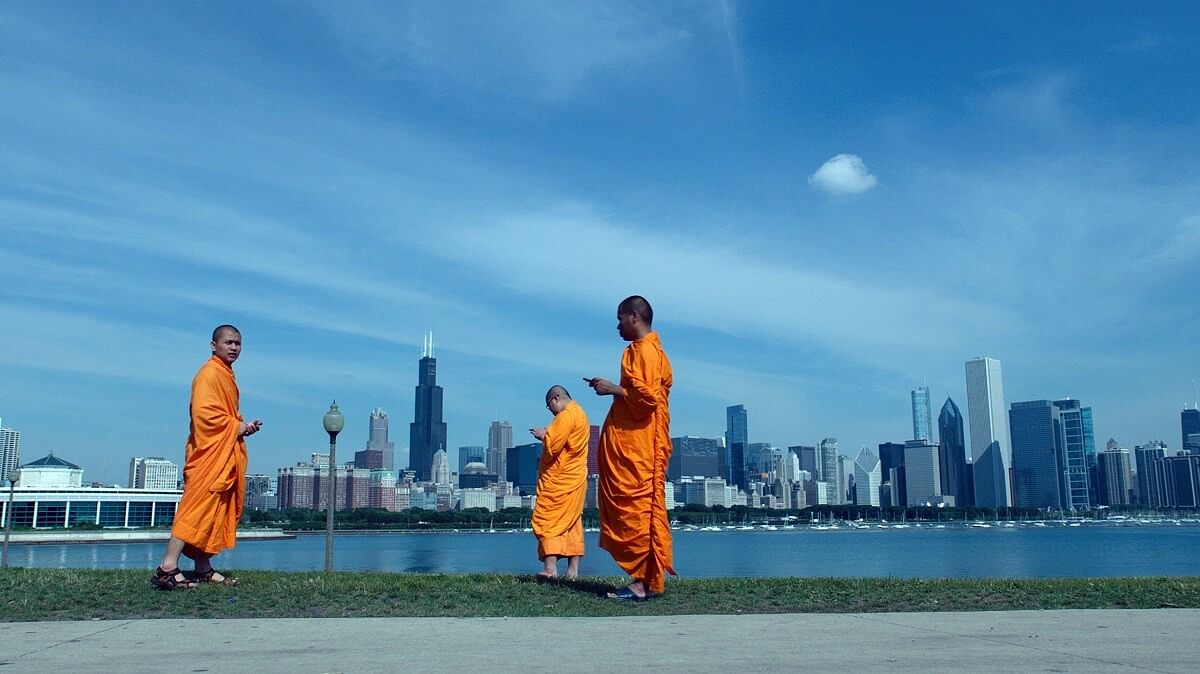Sloshed, slurring and self- destructive, Edina and Patsy once more tear across London in Absolutely Fabulous: The Movie (NC16, 91 minutes, opens tomorrow, 2.5/5 stars).
Jennifer Saunders and Joanna Lumley reprise the roles of the drug-addled, narcissistic and celebrity-obsessed women they made famous in the 1990s television series.
The years have not been kind to them. Not only does Patsy (Lumley) require industrial amounts of Botox to shore up her face, but Eddy (Saunders) the publicist desperately needs a big client.
Patsy, too, has been fired from her job as fashion director after a blunder that causes supermodel Kate Moss to tumble into the Thames.
The women are again the butt of jokes, they being clownish caricatures of the elites who created a pop culture industry that has seen fit to toss them out.
British television, unlike its American cousin, loves losers and Eddy and Patsy come from a line of self-sabotaging characters that include Basil Fawlty (Fawlty Towers) and David Brent (The Office).
In addition, what made the Absolutely Fabulous series unique was its slapdash, knockabout quality. Silly capers, pratfalls and the occasional catty quip were its bread and butter. That is fine in a 30-minute sitcom. In a 90-minute movie, it feels infuriatingly dithering.
Add to that the self- congratulatory parade of fashion-icon cameos and the show's last saving grace - the skewering of haute couture - disappears. The result is neon-coloured tedium.

Speaking of creatures slithering up from the deep, Shin Godzilla (PG, 120 minutes, opens tomorrow, 3.5/5 stars) is Japan's thrilling try at rebooting the film series starring the beast born of atomic testing.
What is audacious about this remake is not the liberties taken with Godzilla lore, but rather how faithful it is to the canon established by Toho Pictures in the 1950s.
America, as it has done with coffee and French fries, upsized the monster. Here, it is smaller and so scaly and stiff as to be almost rock-like.
Forget your computer-drawn beasties - this is old-fashioned man-in-rubber-suit stuff. But the thing is no less menacing and it can also shoot killer rays, like in the old days.
Co-director and writer Hideaki Anno (the Evangelion anime trilogy, 2007-2012) plays this like a realistic political thriller.
In scenes that bring to mind Dr Strangelove (1964) or the recent Eye In The Sky (2015), hawks and doves at the highest levels bicker while minions scurry about covering their behinds.
This is a sharply drawn satire of a Japan crippled by war guilt, worries about its international reputation and a woeful lack of transparency in crisis management, a direct reference to the Fukushima nuclear disaster.
While the older heads fall to infighting, a task force headed by young bureaucrat Rando Yaguchi (Hiroki Hasegawa), aided by the brashly un-Japanese Japanese- American Kayoko Patterson (Satomi Ishihara), quietly get on with saving the country.
The picture's one flaw is the unforgivably stylised Patterson character, but otherwise this creature feature soars far above Hollywood's lifeless 2014 attempt.

Next are two portraits which present examples of how not to do biopics. Genius (PG, 104 minutes, opens tomorrow, 2/5 stars) looks at the life of book editor Maxwell Perkins (Colin Firth) while Hands Of Stone (R21, 111 minutes, opens tomorrow, 2.5/5 stars) examines the life of boxer Roberto Duran.
Perkins discovered F. Scott Fitzgerald and Ernest Hemingway; but this overwrought, pointlessly talky and self-regarding work chooses to illuminate Perkins through the light cast by writer Thomas Wolfe (Jude Law).
Law's Wolfe is a solipsistic blowhard and Firth's Perkins has the patience of a saint, when what one wishes happened was that he had delivered a swift kick to the writer's pants and sent him packing.
Panamanian boxer Duran (Edgar Ramirez) comes up from the streets with two boots on his neck: one belonging to the Marines who oversee the American-owned Canal Zone and the other to poverty.
But he is a slugger in every sense of the word, with a hunger that would see him take the world championship title from Sugar Ray Leonard (singer-turned-actor Usher Raymond), with the help of respected coach Ray Arcel (Robert De Niro).
Writer-director Jonathan Jakubowicz drives home the point that the chip on the shoulder that made Duran great also made him a horrible human being - in other words, the Raging Bull (1980) theory of success which, not coincidentally, starred De Niro.
Besides making Duran look like an off-brand Jake La Motta (the subject of Raging Bull), this film also suffers from this-and-that-ism, when biopics include events for their own sake, without thought of narrative relevance.

For a fact-based work with a great deal more subtlety, try Lo And Behold: Reveries Of The Connected World (PG, 98 minutes, now showing at the ArtScience Museum, 3.5/5 stars), legendary film-maker Werner Herzog's attempt at putting his arms around the topic of the Internet.
The film meanders - he makes side trips into Elon Musk's space ventures, black holes and a robotics laboratory because they have something to do with computers.
But Herzog's loopy, pessimistic perspective keeps things interesting and his signature narration, its Germanic consonants cracking like thunder, is in itself a thing to behold. You have not lived until you have heard him ask respected scientists if "the Internet can dream of itself".
Lo And Behold screens until November. Admission is free with registration at the lobby of the ArtScience Museum. Go to www.marinabaysands.com/artsciencemuseum for details.

